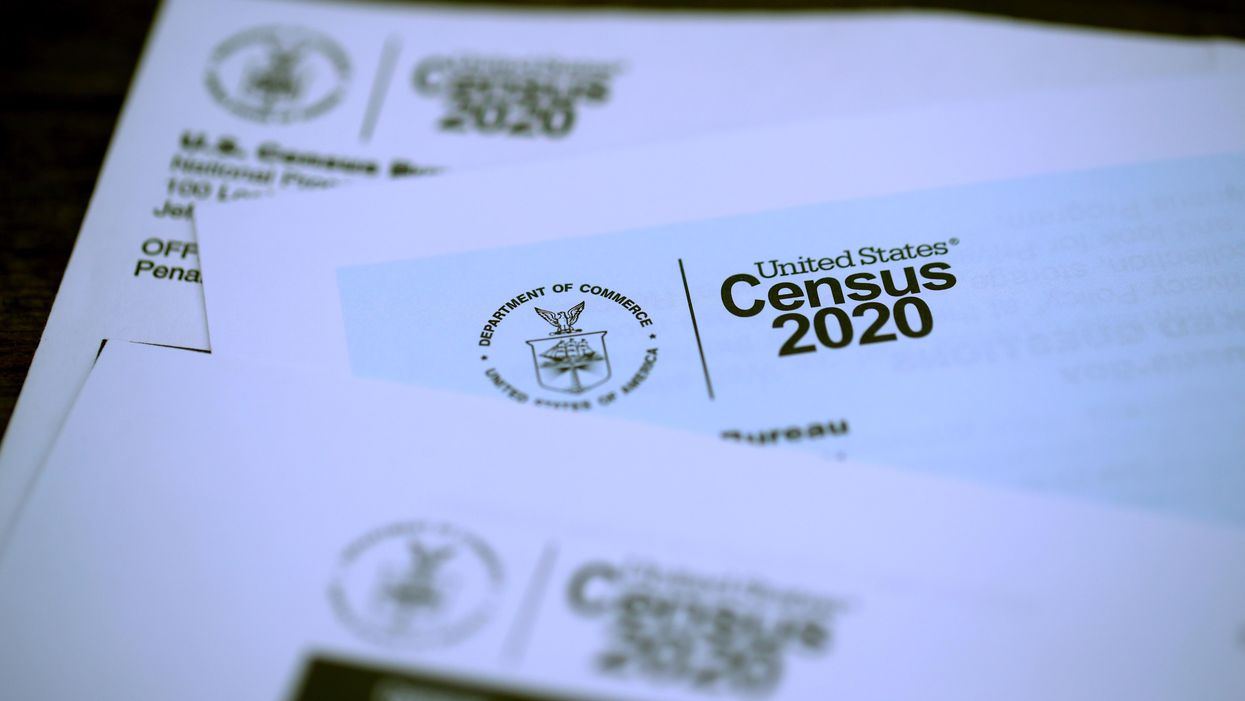Moore-Vissing is associate director for national engagement at Public Agenda, a nonprofit, nonpartisan organization dedicated to creating a stronger, more inclusive, more participatory democracy for everyone. This is the third in an occasional series.
The events of the past year — including the pandemic, Black Lives Matter protests and the insurrection in the Capitol — have shown our nation what happens when we don't address civic challenges or risk factors.
Similar to a dry forest that can become inflamed by a tiny spark, when we don't pay attention to threats to our civic health, one incident can set off a series of chain reactions. For instance, the public's lack of trust in government, which has been steadily declining for some time, has contributed to prolonging the pandemic in multiple ways, including people's unwillingness to wear facemasks or become vaccinated.
When our civic health is strong, communities are less polarized and people are physically healthier, safer and more resilient in times of crisis. Understanding what makes civic health function well or poorly is critical to supporting a strong and functioning democracy.
How do we measure civic health? Multiple factors facilitate healthy or unhealthy civic life – including whether people vote, talk with their neighbors and trust their government. Why are some communities close-knit, while in others people barely talk with each other? Or why do some communities react to crises well, with droves of people helping deal with tragedies or natural disasters, while others lack the "people power" and networks to respond effectively?
My organization explores how to measure these things. Similar to check-ups at the doctor's office, regular "civic health" assessments are essential. By collecting data in a geographic area, we can better understand civic assets, risk factors and what we can do about them.
The predominant way civic health is currently measured is using data from the Current Population Survey, a monthly Census Bureau poll of about 60,000 households. The National Conference on Citizenship currently works with states across the country to create "civic health indexes," pulling data summaries from the civic engagement and voting supplements of the survey.
But the Census Bureau data is limited in measuring civic health in three important ways.
It provides a state-level picture only, so it's not possible to compare what's happening in different parts of a single state. While the survey measures civic actions such as voting or volunteering, it doesn't gauge attitudes and feelings, such as trust in government or whether people feel they matter to others in their community. And while the poll asks about civic actions ("Do you read the news?") it doesn't provide information about the civic life in their community ("My local council gives me a meaningful say in decisions that affect me.")
Civic health outcomes are affected by a community's "civic infrastructure" – the laws, processes, institutions and associations that support opportunities for people to connect, solve problems, make decisions and celebrate community. This can include such diverse things as welcoming public spaces, grassroots groups like neighborhood associations and racial equity training for public officials.
We often incorporate this idea in our research. For example, we helped folks in six states by examining the local and state civic infrastructure before they started trying to improve civic health.
To get a more comprehensive assessment of civic health, several approaches can be taken.
Going beyond the census data may lead to deeper depictions of engagement. The Social Capital Community Benchmarks Survey, sponsored by three-dozen community foundations and used sporadically across the nation, measures trust, social connection and barriers to engagement. Other national surveys, such as the Pew Research Center's American Trends Panel, ask other valuable questions about civic life that could be included in other surveys.
Other state and national research may shed insight into how civic health affects certain populations or social issues, such as opioid use. For instance, the Annie E. Casey Foundation's Kids Count data and the Youth Risk Behavior Survey both provide information about youth experiences and civic health.
Plenty of tools allow citizens to share their own assessments. We have a Civic Engagement Scorecard for people to rate their local community's civic life in terms of participatory practice and transparency. Communities may also experiment with qualitative data collection, such as participatory action research or storytelling campaigns.
Once civic health data is collected, how can communities use it? Ideally, civic health outcomes should directly inform interventions to strengthen civic life. For instance, in our study last year of New Hampshire, we found Millennials lagged behind other generations in civic health outcomes. With one of the oldest populations of any state, New Hampshire's future depends on its ability to support young adults in participating in civic life. Now, the state is considering a variety of approaches to this challenge.
Other states have used civic health data to catalyze conversations about civic life. Connecticut created a statewide civic health advisory committee, which includes the secretary of the state, where leaders from different sectors discuss civic priorities. The Georgia Family Connection Partnership used civic health data to stimulate conversations in different counties about civic health programming and priorities.
The choices we make in the coming years, such as how to rebuild community after the pandemic, will have lasting effects on our society. We are staring into the face of unprecedented political polarization, with rising calls for white supremacy as well as intensifying movements for racial equity. At the same time, our population faces the challenge of reentering public life after more than a year of social isolation.
So there is no more urgent time to make informed choices about what actions will best support strong civic health.



















